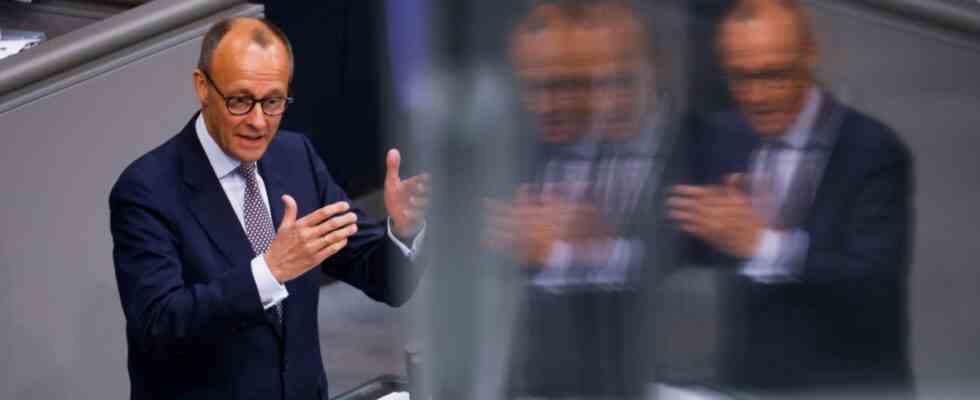Friedrich Merz and his CDU are currently in a huge dilemma: How much opposition can you allow yourself to have during the Ukraine war without damaging the self-image of the state-supporting party? And how much cooperation with the chancellor is possible without becoming politically invisible? That in itself is not an easy consideration. However, it is particularly difficult because of the upcoming state elections in Schleswig-Holstein and North Rhine-Westphalia.
If the CDU Prime Ministers Daniel Günther and Hendrik Wüst lose their offices, the CDU will slide into one of the biggest crises in its history. And Merz, whom so many in the CDU saw as a beacon of hope, would only be able to stay in office six months after his election because there are no longer any serious challengers in the party.
So Merz is under a lot of pressure. In his distress, he decided to take a hard line in the Bundestag debate on heavy weapons. He attacked – completely in opposition – long and sharply the behavior of the chancellor. It was only at the end of his speech that he spoke briefly about what was common. Merz seems to have settled on a role: he is ready to support the coalition, but only with great fanfare and on his terms.
In any case, Merz’s speech was aimed more at his own camp than at the country. And she was politically aggressive, despite the sensitive subject – guns and war. But Merz wanted to show on the big stage that the Union had prevailed against a hesitant and sometimes snooty chancellor. That’s only partly true – because the FDP and the Greens helped a lot. But it was also the Union, and Merz wants to score with this success.
It is not certain that Merz will score politically with the arms deliveries
However, it is not certain that this will succeed. The fear of war in Germany is great, arms deliveries are not popular. And the CDU has an above-average number of older voters who still have memories of the Second World War.
In addition, the CDU leader now has to live with the fact that the traffic light coalition constantly accuses him of partisan action in a crisis. That’s bigoted – as Lars Klingbeil’s reply to Merz in the Bundestag debate exemplified. The SPD leader’s speech was shaped just as much by party political interests as that of the CDU leader. Nevertheless, the Union finds it difficult to defend itself against the accusation.
Merz is right about a lot of what he complains about Olaf Scholz’s actions – and regularly also non-actions. In addition, it really doesn’t add up that on the one hand the chancellor ordered the foreign minister back to the Bundestag from an important NATO meeting in Brussels at the beginning of April so that she could take part in the vote on compulsory vaccination. And that, on the other hand, Scholz did not take part in the vote on heavy weapons, but flew to Japan.
The Bundestag’s decision to also deliver heavy weapons directly to a war zone marks a turning point in Germany’s post-war history. It would have been appropriate for the Chancellor to take part in the debate. But he likes to avoid open conflicts. At least you couldn’t accuse Merz of that on Thursday.

